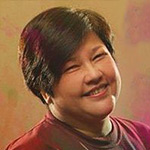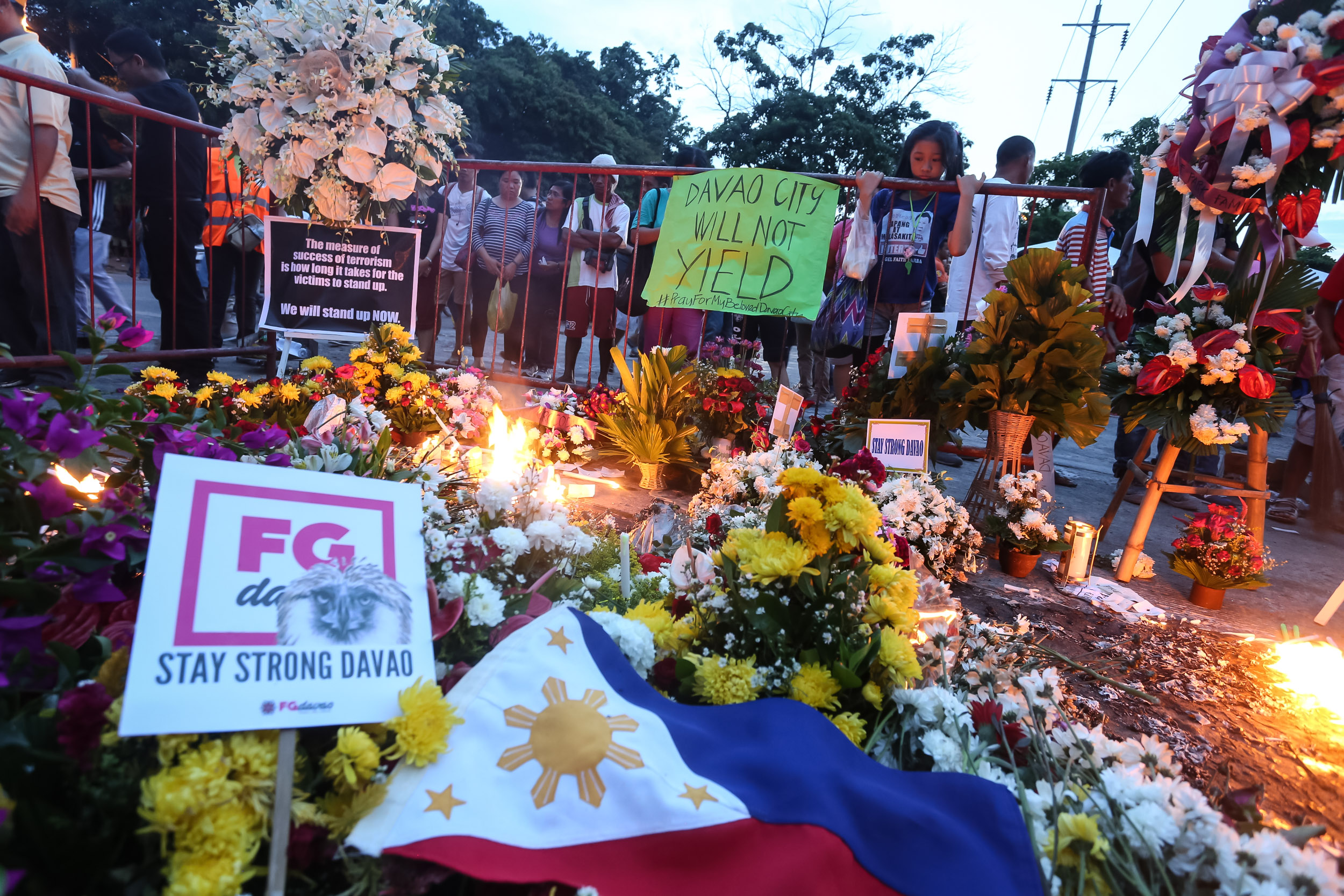
Decades ago, I decided that if I was ever going to live outside my beloved Quezon City, I would live in Davao.
In the late 1980s, fate shoved me into the women’s movement. I had been in community-based and human rights health organizations almost throughout the Marcos dictatorship. But for reasons too long to tell, I ended up working with Gabriela. (For reasons also too long to tell, and merely to make an ethical disclosure, I left Gabriela later.)
It was a lucky thing, being brought into the women’s movement. The political Left I had come from was splintering. It was going through a rethinking and reorganization. So there was an ebb in its external work as it looked internally for ways to move forward. But the women’s movement flourished in this period.
Davao upsurge
In my mind, Davao was one of the leading centers of this upsurge. As an activist, I was called, not to lead or stay, but to do grunge work. I was called to assist the women leaders when they needed a young and exploitable someone from Metro Manila. And I was “exploitable” to the max, because the real women leaders of Davao where “exploiting” themselves and creating wonders from nothing. Yes, we used that term on each other. Exploitation.
Being quite the foodie, my only honorarium was durian and marang. How much I would get paid depended on how busy we would be. On the night of my arrival, I would be taken for dinner to the durian vendors (marang too if in season) where we would sit in the open air, complain about cholesterol, and eat. I never learned to distinguish colors and varieties and ripeness. Being the guest and the fool from Manila, my hosts did all the talking and haggling for me. I just took advanced payment on the work for the coming days.
If there was time before I was put back on the plane, I would be taken for the second tranche. If not, I would get back on the plane hoping they would exploit me again.
What was it that the women were doing then in Davao? I am wary of my weak memory because I cannot possibly name the women’s organizations that exploded in number. General political organizations. Sectoral ones for the urban poor, the workers, teachers, etc. Many were already strong during Martial Law but some were new or expanding. Rape crisis centers, income generating projects, women’s health organizations, an academic consortium. In the women’s movement, Davao was rocking and rolling.
Women activists
It was also laughing and rejoicing. If my main honorarium was durian, my secondary honoraria was staying in the house of our perpetual host, Lyda Canson. The woman was running a free inn for all us visitors. I still owe her 100 pesos for a massage I had in her home while waiting for my delayed flight. She lives near the airport and I never had to wait at the airport because she would have me driven when the plane was truly ready to leave. (This means that I had been checked in already and often when my luggage came out in Manila, I would have been given additional goodies to take home. This is not because I was a particularly important someone. Just a someone who had a place in the humongous hearts of the women activists of Davao.)
But that was only the beginning of this long and lucky streak of mine. Which city was the first to adopt a comprehensive women and development code? Davao. Maybe because it was that women like Luz Ilagan and Cora Malanyaon decided to invade the local government and get elected councilors.
Were the women and the local government officials happy with the code? No. The document had to be implemented effectively. To this day, Davao’s allocation and use of its gender budget is better than the national average. With that kind of a budget, with the political wisdom of a strong LGU-NGO alliance, things get done. Programs to prevent trafficking and violence against women, rape crisis centers, reproductive health, social benefits for women of various needs. They trained women and men in the bureaucracy, constantly. I have had nothing but the highest admiration for Lorna Mandin and the women of Davao City’s Integrated Gender and Development Division, an office directly under the mayor.
Strong social institutions
As I myself moved into academic life in the 1990s, I met the irreverent women of that Jesuit institution called “Ateneo de Davao.” Ah, Professors Rose Sanchez and Bing Chan! What can I say? In my files I still have the documentation for one of the research meetings held in Manila for our national research consortium on reproductive health. “A marang break was had as the Ateneo de Davao group arrived,” says our minutes.
The smartness of our repartee! Ateneo de Davao professors were bragging about how cheap the marang was that they had brought for us. (Parenthetically, I cannot help but note the fine detail of how difficult it is to transport marang as opposed to durian.) And someone said, “You should have pretended it was so expensive so we would be even be more touched.” And they answered, “But where is the wisdom in that? We could have brought you expensive fruit from Davao but the marang is best this week because it is ripe and plentiful. And that is why it is cheap.”
I remember the incredible, scholarly and groundbreaking work. This work came gift-wrapped in stories like how Bing and Rose had to take baths to calm themselves after the intense sharing of sex workers/ women in prostitution.
Then there is Brokenshire Memorial Hospital with its sterling reputation for high medical standards and community activism, a renowned name for community health dreamers even during martial law. In 2001, the national government had effectively banned the importation of the emergency contraceptive, Postinor, used for various reasons including the prevention of pregnancy after rape. Dr. Darlene Estuart of Brokenshire, in cooperation with Isabelita Solamo Antonio of PILIPINA Legal Resources Center and the Davao City Office, sponsored an international conference on Postinor in December 2006. It is a drug recommended to be on a country’s essential drug list by the World Health Organization.
So we were hailed to Davao. Activists, academics, international and local experts, we all came. And, we had the kind of scientific meeting I wish would be the standard.
Meet the mayor

It was the first time I met and listened to Mayor Rodrigo R. Duterte. I admired him already because talking about Postinor, which had been wrongly labeled an abortion drug, was a scary proposition for activists like me. But we were his guests. Our opening dinner was by his sponsorship. The opening ceremonies of the conference, arranged by the mayor, was an exposition of Mindanao culture. Davao was a safe space for this conference, as it could not be elsewhere, because of his blessing.
Mayor Duterte gave us a keynote address. I remember how amazed I was that he did not talk about the medication itself, but how all the brouhaha was a failure to understand the importance of a positive approach to sexuality. He understood this!
And when he talked about sexuality, it was funny and earthy. And often he came to the edge of what was uncomfortable. Sexuality is either macho, emphasizing only men’s privileges. Or it is egalitarian – accepting women not merely as men’s sexual objects but as sexual beings also. A positive sexuality also means though that women need not be measured as merely sexual, as men are also not always sexualized. Indeed the mayor talked mostly about men’s sexuality. But he said nothing derogatory about women. And often, when his humor was bordering on raunchy, I would hold my breathe wondering what the international guests might think. Maybe some of them found him too much. But I always thought he would come just right up to the line of the decent, and then stop right there. To me he was so Davao. Purposely simple, rough and gritty but sincere and authentic.
Later when my friends asked me what I thought, I gave my assessment. And I said that they should continue to talk to him and maybe “genderize” him even more. Because I wasn’t sure what he thought of the women’s side of sexuality. And I was hopeful I would hear more stories of the mayor, because I told he was an accessible man. I was confident my friends would get him to see their feminist views.
More praise
So many memories. Good ones.
I cannot help but think of all the women and men I value because we met in Davao. Many are still there, while others are scattered all over Mindanao, holding true to the values Davao nurtured for them and for me.
Though I have my beloved Kyusi, there will always be something in me that presses my nose at the window glass of Davao, in envy.
A postscript
I started this hoping not to add a BUT. I was thinking not to address the current political situation because I wanted a plain and simple expression of admiration. But there is so much misunderstanding now. In the light of the toxic and threatening atmosphere that has pervaded our national debates, I thought an explanation is better than none.
So first, I must also mention that I haven’t talked recently to any of the women I have mentioned here. I have no idea who they voted for and what their current take on the political situation or the administration of President Duterte is. Perhaps they disagree with me completely. But that will not diminish my respect for a shared past. And, for many mentioned, it will not diminish my affection and respect. I do not, however, wish them tagged or associated with any of my political sentiments.
I have indeed been critical of President Duterte’s drug war, the killings in police operations, the extrajudicial killings, the Marcos burial at the Libingan ng mga Bayani. Thus, I have been accused of hating him, of not knowing Davao, of being a ivory tower academic, of not giving him a chance, of being an elitist imperialist from Manila, of not wanting him to succeed.
But I believe that citizenship demands that we remain critical. To speak up when something is wrong. Everywhere I have gone, including Davao, I have seen that differences are valuable because contradictions, handled with acceptance and humor, create miracles. I have learned that we are never just fully supportive nor never just fully critical. And it is crucial to our national life that we acknowledge this as our fundamental strength.
For those who say that I dishonor Davao and its people because of my opposition to its former mayor – I am ready to yield. I know I am an outsider. And perhaps I am now persona non grata to a city that once held me in its grace.
But before I yield, I write this homage.– Rappler.com